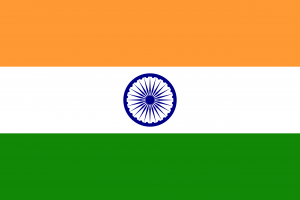Language/Hindi/Culture/Major-Festivals
| ◀️ Asking for Directions — Previous Lesson | Next Lesson — Public Holidays ▶️ |
Namaste, welcome to the major festivals lesson of the Complete 0 to A1 Hindi Course. In this lesson, we will delve into the vibrant world of Indian festivals and their significance in Indian culture.
India is a country of diverse cultures, religions, and traditions, and festivals are an essential part of Indian culture. The festivals are an occasion for celebrations, gatherings, and renewing bonds of love and friendship.
The major festivals in India showcase the rich cultural heritage of the country and demonstrate the unity in diversity. Some of the major festivals of India are Diwali, Holi, Eid, Durga Puja, Navratri, Makar Sankranti, Raksha Bandhan, and Christmas.
Let's explore some of these major festivals in detail.
Don't miss the chance to check out these pages as you wrap up this lesson: Schools of Philosophy in the Ancient India & Visual Arts : Ajanta Paintings.
Diwali
Diwali or Deepavali is one of the most popular festivals of India and is celebrated with great enthusiasm across the country. It is also known as the "Festival of Lights" and symbolizes the victory of good over evil.
The festival usually falls in October or November and lasts for five days. People decorate their houses with lights and diyas, burst firecrackers, wear new clothes, prepare sweets, and offer prayers to Goddess Lakshmi, Lord Ganesha, and Lord Rama.
Diwali is a time for forgiveness, new beginnings, and spreading happiness. It is an excellent occasion to experience the Indian culture and immerse oneself in the joyous celebrations.
Holi
Holi is another popular festival of India and is also known as the "Festival of Colors." This festival is celebrated in the month of March and marks the arrival of spring.
Holi signifies the victory of good over evil and is celebrated by smearing colors on each other, irrespective of age, caste, or gender. People also exchange sweets, dance to the beats of dhol, and sing songs.
Holi is a festival that brings everyone together and is a time for spreading love and joy. It is an ideal occasion to experience the vibrant culture of India.
Eid
Eid is a significant festival for Muslims and is celebrated across the world with great zeal and enthusiasm. In India, it is celebrated twice a year – Eid al-Fitr and Eid al-Adha.
Eid al-Fitr marks the end of the month of Ramadan, which is a month of fasting and prayer for Muslims. On this day, people wear new clothes, offer prayers, and exchange sweets and gifts with friends and family.
Eid al-Adha or Bakra Eid is celebrated to commemorate the sacrifice of Prophet Ibrahim. On this day, Muslims offer prayers and sacrifice an animal, which is then distributed among the poor and needy.
Eid is a time for spreading love, peace, and harmony, and is an excellent opportunity to learn about the Islamic culture and traditions.
Conclusion
This brings us to the end of the major festivals lesson of the Complete 0 to A1 Hindi Course. We have covered some of the major festivals of India and their significance in Indian culture.
Festivals are an integral part of Indian culture and provide an excellent opportunity to experience the diverse traditions, customs, and rituals of India. We hope you enjoyed learning about these festivals and look forward to your continued progress in the course.
Remember, learning a language involves understanding the culture and customs of the people who speak it. So, keep an open mind, immerse yourself in the culture, and enjoy the learning journey.
Now that you've completed this lesson, don't stop learning! Check out these related topics: Marriage in India & Drinking Alcohol in India.
Other Lessons
- Ayurveda : Introduction
- Contemporary Society and Language Use
- Drinking Alcohol in India
- India Timeline
- Public Holidays
- Harvesting Festival
- Marriage in India
- Yoga
- Linguistic Diversity
| ◀️ Asking for Directions — Previous Lesson | Next Lesson — Public Holidays ▶️ |

